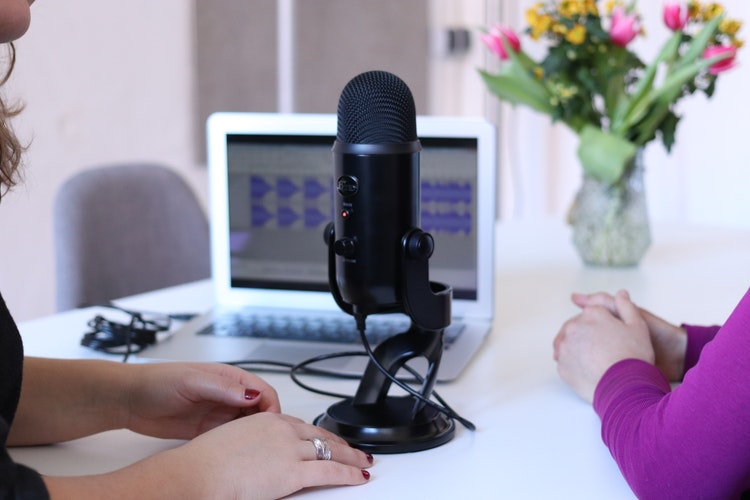University is the best time to learn how to multitask and prioritise your time because the repercussions for getting it wrong are not as bad as when you become a fully-fledged adult. Despite this, students sometimes shy away from taking up new hobbies because they think they don’t have enough time.
This couldn’t be truer for learning a new language – countless times I have heard comments about how people would love to, but they don’t think they can manage it around their studies/it’s too hard/boring, etc. Personally, I think those people (yourself included) are quite capable of achieving their language goals, should they plan ahead and motivate themselves. Maybe it might be a bit challenging, but just think of the rewards in store! Once you’ve chosen a language, all that’s left is having a good game plan; these activities will certainly help with that.
Regular practice

First and foremost, I can’t emphasise enough the importance of frequent interaction with your chosen language. Sure, the way you learn and what you learn is imperative too, but not practising often is perhaps the biggest reason people give off language learning. Again, it’s about time – 10 minutes of flashcards a day before lectures will get you further and keep you motivated for longer than cramming in vocabulary for 2 hours on a Saturday.
Short sessions of regular practice prevent burn-out and stops you from getting fed-up. It’s also easier to focus on being as productive as possible since you know you only have a short amount of time to study.
Online lessons and resources

There are plenty of websites to help you learn in your spare time – many of them free. They are excellent for trialling multiple languages if you’re just setting out. Take Duolingo for instance, as soon as you set up an account you can take any number of beginner’s lessons in several languages simultaneously. If you’d prefer to focus on one language, many websites offer blogs with specific language tips, cultural advice, and videos such as FluentU and italki.
Some websites are structured like textbooks, making it easier when starting out.
Finally, I ought to mention websites that are generally useful for learning any subject as well as languages. Quizlet is a website that allows you to create flashcards; its large database of users means that there are plenty of pre-existing flashcard sets available to use, but you can also create your own if you wish.
Podcasts and apps

Why not replace your music playlist with a language podcast? The amazing thing about podcast stores is that you can usually search in other languages and other countries’ stores with ease – and it’s all free. If you find a podcast in the language you’re learning that covers a topic you’re already interested in, then you really hit the jackpot. You might need to listen to each episode repeatedly until you understand everything, but that practice adds up over time. However, to avoid frustration it’s better to start with slow speaking beginner’s podcasts and working your way up. A suitable example for beginners would be the podcast series News in Slow which offers listening practice in Spanish (European and Latino), French, Italian, and German.
Take advantage of the ubiquity of apps by applying them to languages. Apps specifically dedicated to language learning exist such as Drops and Memrise. The good thing about them is they provide a fun, interactive dose of vocabulary and grammar which encourage you to use them often. In addition, it’s more likely that an app will have advice on up-to-date cultural information, slang, and conversational vocabulary whereas textbooks can get outdated fairly quickly. If you’re self-studying, apps also act as a way to practise speaking and connect with other learners through apps like HelloTalk and HiNative.
Culture clubs (not of the ‘Karma Chameleon’ kind)

You’re probably keen on some cultural immersion during your lingual journey but being a student, you might lack the time and funding for an overseas trip. No money? No problem. You have the opportunity for cultural exchange right on campus, no doubt your university has a sizeable cohort of international students. If you ask politely, they will happily share the wonders of their country and culture with you, there will likely be a society for it as well. There’s no harm in meeting with other learners if you can’t find a native speaker – that way you can learn from your mistakes together.
If you have no luck there, try online clubs through Facebook and Tandem which often have a very international reach. These frequently use humour and memes to help you remember words and grammar points better, but always check that their information is correct and, naturally, be aware of scams.
Good ol’ textbooks

Textbooks have the advantage of providing an in-depth, structured route for lessons that cover both grammar and vocabulary. They’ve been around for ages and so multiple brands have built up a good reputation, like the Genki textbook series for Japanese. They are also really consistent and reliable, which online resources do not always live up to. Setting aside some time to go over a couple of pages each day really add up, and you can physically track your progress with bookmarks.
Your library is a great port of call for this one, it doesn’t get freer than this. You don’t even have to stick to textbooks, fiction works just fine. It’s a lot more fun reading in another language if you actually like the plot! In my university, I managed to find Alice in Wonderland in French, Spanish, and Latin so I imagine you’ll have similar luck. Of course, be wary that books might not reflect conversational and everyday language all too well, as the living nature of most languages means books go out of date.
